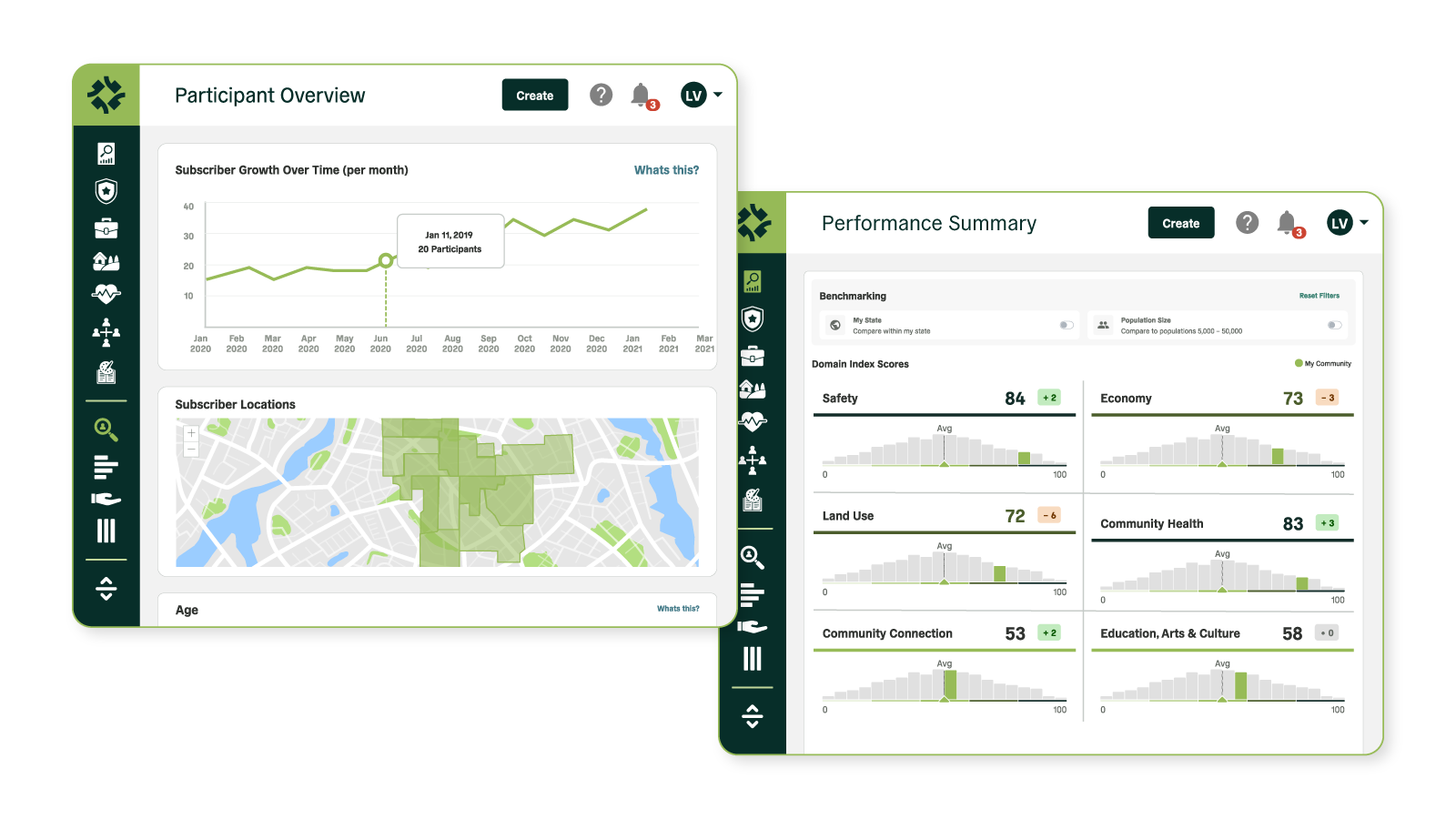Polco Launches the Small Cities Pilot Program
By Polco on July 24, 2023

A new initiative empowers small cities to make better community decisions with the boundless potential of data.
Small cities often do not have the capacity for in-house data collection, which takes expertise, time, and money. But now these communities have the same access to decision-making data as larger governments.
The Small Cities Pilot Program by Polco gives local governments with populations under 20,000 access to an abundance of information about their community instantly. This empowers small organizations to make smarter decisions, apply for more grants, and improve strategic planning. The program also equips small cities with engagement tools that extend their reach beyond the vocal minority.
Make Data Collection Simple With the Small Cities Pilot Program
 “In many instances, smaller communities find themselves at a disadvantage due to limited resources,” said Polco CEO Nick Mastronardi. “The Small Cities Pilot Program effectively eliminates the need for in-house data collection and the time-consuming task of data measurement.”
“In many instances, smaller communities find themselves at a disadvantage due to limited resources,” said Polco CEO Nick Mastronardi. “The Small Cities Pilot Program effectively eliminates the need for in-house data collection and the time-consuming task of data measurement.”
The program gives small communities data they need in easy-to-read dashboards. The data come from credible, trusted sources such as the US Census and the Bureau of Labor and Statistics.

Polco’s Senior Vice President of Innovation and top researcher, Michelle Kobayashi, has worked with local governments for the past three decades. Her expertise played a pivotal role in selecting the most important data points that align with true indicators of local government success.
This knowledge is significant because understanding what data points to measure is a common source of confusion for local governments.
 “We know gathering, reporting and choosing the right outcome indicators are not simple tasks. But we want successful, data-based decision-making to be realistic for all cities,” Kobayashi said. “That’s why it’s so important to me to be able to provide governments access to resources that help them measure what’s important based on their goals.”
“We know gathering, reporting and choosing the right outcome indicators are not simple tasks. But we want successful, data-based decision-making to be realistic for all cities,” Kobayashi said. “That’s why it’s so important to me to be able to provide governments access to resources that help them measure what’s important based on their goals.”
For instance, communities may look at how many square meters of green space exists per person as a way to analyze park availability. But this says nothing about how accessible the parks are for residents. The data on Polco show how many residents are in a square mile of a park as a better representation of this topic.
Data like this simplifies strategic planning in multiple ways. First, it helps governments identify where they need to focus their energy. It can help align people to the same shared goal by revealing what needs the most attention. Organizations also save time brainstorming how they are going to measure progress. And they don’t have to spend hours collecting data themselves.
Local governments can use this data to apply for grant funding. Grant opportunities are known for having short application windows. The more evidence local governments quickly have at their disposal, the more nimbly they can apply. The data also makes any application more competitive. The information arms governments with more evidence to prove the need for grant funding.
Reach More Residents in Less Time With the Small Cities Pilot Program
Incorporating online survey tools further enhances the data collection process, this time from the perspective of residents. Acquiring resident input has always been a priority for governments, but achieving this can be challenging. Town hall meetings often attract only a vocal minority, while social media tends to amplify extreme viewpoints. The Small Cities Pilot Program offers a solution.
Governments can build a resident following on the Polco platform. From there, local governments can create polls and surveys to get feedback from their following of residents for feedback on any topic at any time. This aspect of the program has been a big draw for communities that have already joined.
"Leaders are used to listening to the people who are the loudest right in front of them. I was excited about Polco because it would give a voice to the rest of the community,” said Sheila Ernzen, City Administrator for Kearney, MO. The city recently joined the program.
Local governments can also use Polco’s library of pre-built surveys. These are assessments on popular community topics like affordable housing, equity and inclusion, and parks. Kobayashi and other Polco data science experts created the survey to ensure quality. All of the questions on the pre-built assessments meet all the rigors of survey research methods, adding another layer of confidence.
The survey library has been a boon for small local governments who may not have the time on their hands or the expertise to make surveys themselves.
Although the program has recently been launched, dozens of small communities have already embraced its potential. Your city can join the ranks of these pioneering small local governments spearheading change with data!
Join Dozens of Other Small Cities to Unlock Your Potential With Data
Many small governments can't access the abundance of data that's available to them because they don't have the resources or staff to make sense of it all—until now. Polco gives small governments access to hundreds of public data sources that have been distilled and analyzed into key indicators specifically for each city or town. As a community leader, see how you can put this data to work for you.
Related Articles
Popular posts
Sign-up for Updates
You May Also Like
These Related Stories

From Zero to Funded: How Small Cities Are Finally Winning Grants

Big Data for Small Community Decisions


